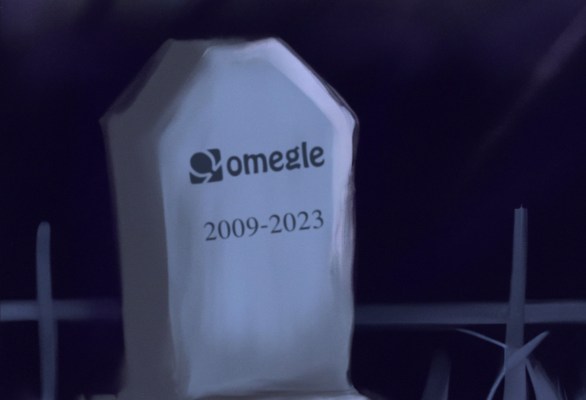Omegle, a popular online chat service that allowed individuals to connect and talk with strangers, has shut down after more than 14 years citing growing misuse of the platform, including in committing “unspeakably heinous crimes.”
The site, founded in 2009 by a then 18-year-old programmer and high school student Leif K-Brooks, was bootstrapped throughout its existence. Though it waned in popularity over the years, it still pulled about 50 million visitors last month, according to analytics firm SimilarWeb.
“I didn’t really know what to expect when I launched Omegle. Would anyone even care about some Web site that an 18 year old kid made in his bedroom in his parents’ house in Vermont, with no marketing budget? But it became popular almost instantly after launch, and grew organically from there, reaching millions of daily users. I believe this had something to do with meeting new people being a basic human need, and with Omegle being among the best ways to fulfill that need,” K-Brooks wrote in a blog post.
Omegle received criticism after the service became a breeding ground for a lot of sketchy activities during the pandemic, which delivered a surge in its usage. K-Brooks said the firm tried to implement a number of improvements over the years, but the “recent attacks have felt anything but constructive.”
“As much as I wish circumstances were different, the stress and expense of this fight – coupled with the existing stress and expense of operating Omegle, and fighting its misuse – are simply too much. Operating Omegle is no longer sustainable, financially nor psychologically. Frankly, I don’t want to have a heart attack in my 30s,” he wrote.
K-Brooks, who appears to have run the service alone, expressed disappointment in just how much the internet has changed in the past decade.
“The battle for Omegle has been lost, but the war against the Internet rages on. Virtually every online communication service has been subject to the same kinds of attack as Omegle; and while some of them are much larger companies with much greater resources, they all have their breaking point somewhere. I worry that, unless the tide turns soon, the Internet I fell in love with may cease to exist, and in its place, we will have something closer to a souped-up version of TV – focused largely on passive consumption, with much less opportunity for active participation and genuine human connection.
